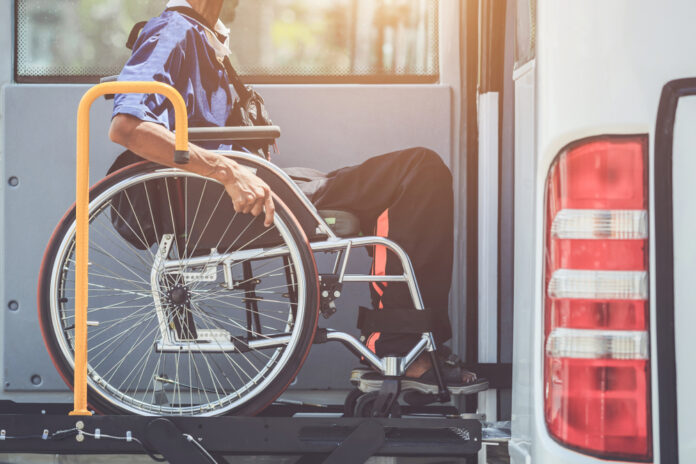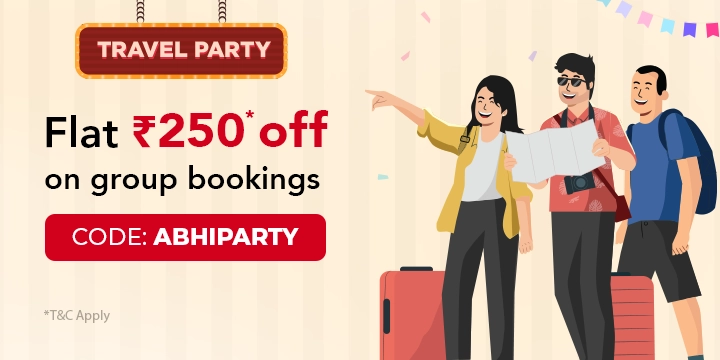How to Travel with a Disabled Person
Traveling with a disabled person can present unique challenges, but with proper planning and consideration, it can also be a rewarding and enjoyable experience. Whether you are traveling by plane, train, bus, or car, there are several important factors to consider to ensure a smooth and comfortable journey for everyone involved.
Also Read: 5 Common Illnesses While Traveling
Pre-Travel Preparation
- Consult with the Person: Discuss the travel plans with the disabled person to understand their specific needs and preferences.
- Medical Considerations: Obtain necessary medical documents, medications, and ensure you have access to medical facilities at your destination.
- Accessibility: Research the accessibility of your mode of transport, accommodation, and attractions at your destination.
- Specialized Equipment: Arrange for any specialized equipment or mobility aids needed for the journey.
Choosing the Right Mode of Transport
- Air Travel: Notify the airline in advance about any special requirements. Request wheelchair assistance and pre-board if necessary.
- Train Travel: Book accessible seating and inquire about facilities for disabled passengers.
- Bus/Coach Travel: Check if the bus is equipped with a lift or ramp and inform the driver of any specific needs.
- Car Travel: Ensure the vehicle is accessible and comfortable for the disabled person. Plan for regular breaks.
Packing Essentials
- Medications: Carry an ample supply of medications, along with prescriptions.
- Comfort Items: Pack comfort items such as cushions, blankets, or favorite snacks.
- Medical Documents: Keep a copy of medical records, doctor’s contact information, and insurance details.
- Accessibility Aids: Bring any necessary mobility aids or equipment.
During the Journey
- Communication: Maintain open communication with the disabled person to address any needs or concerns.
- Comfort: Ensure the person is comfortable with proper seating arrangements and access to amenities.
- Assistance: Offer assistance as needed but respect the person’s independence and dignity.
- Accessibility: Advocate for accessibility if needed, especially in public places or transportation.
Arriving at Your Destination
- Accessibility Check: Verify that the accommodation and attractions are accessible as expected.
- Local Resources: Familiarize yourself with local resources for disabled travelers, such as accessible transportation services.
- Emergency Plan: Have a plan in place for emergencies, including medical emergencies or unexpected disruptions.
After the Trip
- Feedback: Provide feedback to the travel providers about your experience to help improve services for disabled travelers.
- Reflect and Improve: Reflect on the journey and identify areas for improvement for future trips.
- Share Experiences: Share your experiences with others to raise awareness and promote accessible travel.
Traveling with a disabled person requires careful planning and consideration, but with the right preparation, it can be a rewarding and fulfilling experience for both the traveler and their companions.
Tips for Traveling With Physical Disabilities
Traveling with physical disabilities can present unique challenges, but with careful planning and preparation, it can be a rewarding experience. Here are some tips to make your journey more comfortable and enjoyable:
Before You Travel
- Plan Ahead: Research your destination to understand its accessibility and facilities for disabled travelers.
- Medical Preparation: Ensure you have an ample supply of medications and carry a copy of your prescriptions.
- Travel Insurance: Purchase travel insurance that covers any medical emergencies or unexpected disruptions.
- Accessibility Needs: Inform your airline, train, or bus company about your specific needs in advance.
- Mobility Aids: Bring any necessary mobility aids, such as a wheelchair or walker, and ensure they are in good condition.
During Your Journey
- Arrive Early: Arrive at the airport or station early to allow time for assistance and boarding.
- Assistance Request: Don’t hesitate to request assistance from airline or train staff if needed.
- Comfort: Dress comfortably and bring items that can enhance your comfort, such as cushions or blankets.
- Stay Hydrated and Rest: Drink plenty of water and take breaks to rest during long journeys.
- Medication Management: Keep your medications easily accessible and take them as prescribed.
At Your Destination
- Accommodation: Ensure your accommodation is accessible and meets your needs.
- Transportation: Use accessible transportation options, such as wheelchair-accessible taxis or buses.
- Accessibility of Attractions: Check the accessibility of tourist attractions and plan your visits accordingly.
- Local Resources: Familiarize yourself with local disability services and support in case of emergencies.
- Enjoy Your Trip: Focus on the positive aspects of your journey and make the most of your travel experience.
After Your Trip
- Reflect: Reflect on your trip and identify any challenges or improvements for future travels.
- Share Your Experience: Share your travel experiences with others to help them plan their trips better.
- Provide Feedback: Provide feedback to travel providers about your experience to help improve services for disabled travelers.
Traveling with a physical disability requires careful planning and consideration, but with the right preparation, it can be a fulfilling and enjoyable experience.
How do you travel with a handicapped person?
Traveling with a handicapped person involves several key considerations to ensure a safe and comfortable journey. Here are some steps to follow:
- Plan Ahead: Research the accessibility of your destination and mode of transport. Ensure that the places you plan to visit are wheelchair-friendly and have accessible facilities.
- Communicate Needs: Inform your travel providers about the specific needs of the handicapped person. This includes requesting wheelchair assistance at airports or train stations and ensuring that your accommodation is accessible.
- Pack Wisely: Bring necessary aids and equipment, such as a wheelchair, walker, or cane. Also, pack essential medications, medical documents, and a list of emergency contacts.
- Stay Flexible: Be prepared for unexpected changes or delays in your travel plans. Have a backup plan in case of emergencies or unforeseen circumstances.
- Seek Assistance: Don’t hesitate to ask for help when needed. Many airports, train stations, and tourist attractions have staff trained to assist handicapped travelers.
By following these steps and planning ahead, you can make traveling with a handicapped person a more enjoyable and stress-free experience.
How do you travel with someone who can’t walk?
Traveling with someone who can’t walk requires careful planning to ensure their comfort and safety throughout the journey. Here are some tips:
- Choose the Right Mode of Transport: Select a mode of transport that is accessible and comfortable for the person. This may include trains, buses, or cars with wheelchair ramps or lifts.
- Arrange for Assistance: Notify your travel providers in advance about the person’s needs. Request wheelchair assistance at airports or train stations, and ensure that your accommodation is wheelchair-friendly.
- Pack Essentials: Pack necessary items such as mobility aids, medications, and comfortable clothing. Also, carry a list of emergency contacts and medical information.
- Plan Your Itinerary: Research accessible attractions and activities at your destination. Choose accommodations that have accessible facilities and services.
- Stay Attentive: Be aware of the person’s needs throughout the journey. Offer assistance when needed, but also respect their independence and privacy.
By following these tips and planning, you can ensure a smooth and enjoyable travel experience for someone who can’t walk.
AbhiBus, India’s leading online bus ticket booking platform, is dedicated to making travel accessible and convenient for all, including those with disabilities. With AbhiBus, booking bus tickets for travel with a disabled person is made simple and hassle-free. The platform offers a user-friendly interface that allows travelers to easily select accessible buses, specify any special requirements, and ensure a comfortable journey for themselves and their companions. AbhiBus’s wide network of bus operators ensures a range of options to suit different needs, making it the ideal choice for travelers seeking a smooth and inclusive travel experience.





